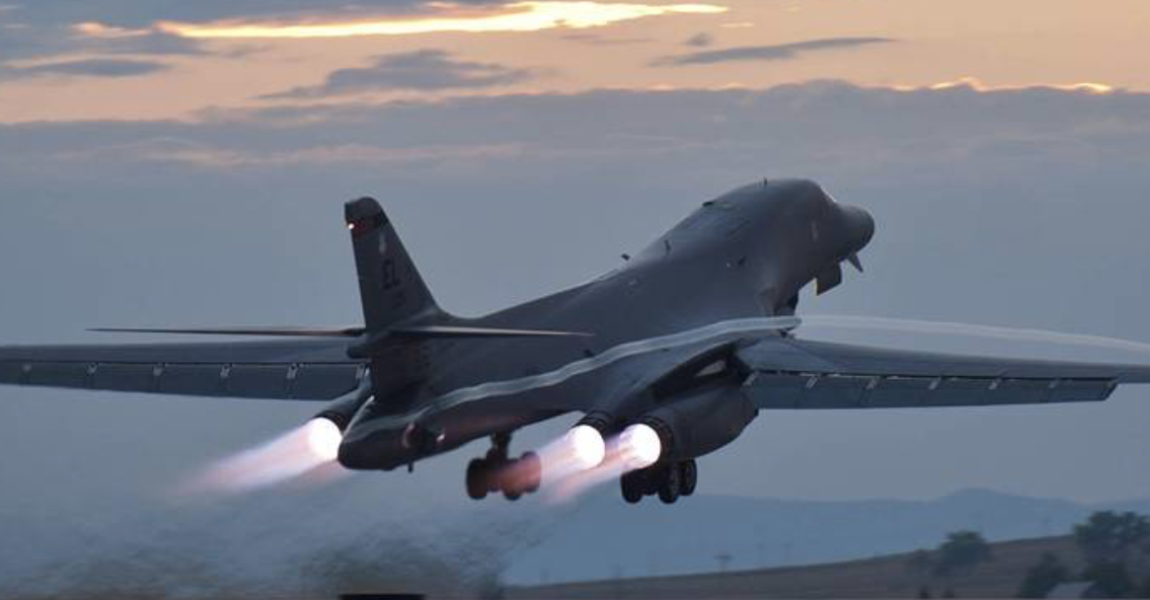
Presidential Wars
What we always considered a futuristic vision of a dystopian world in which a mad dictator hurls nuclear weapons toward our nation turns out not to be confined to the pages of apocalyptic science fiction.
Sorry, after I wrote the above paragraph I just liked it too much to hit the delete button.
Now, on to the Constitution!
In Syria, Afghanistan and Korea, there appears to be a new willingness by the President of the United States to take direct military action when he deems it necessary.
What is the constitutional authority for the President to exercise war powers?
The question, ironically, illustrates that some of the best known of our Constitution’s provisions may be the least understood.
Two are at work. Under the constitution, only Congress may declare war. The constitution also explicitly provides that the conduct of war resides with the President as the Commander in Chief of the Armed Forces.
People who study the constitution, its history and its theories endlessly debate the concepts of “checks and balances”, “separation of powers” and “shared powers”, but all the words get rather tedious and pale when as a nation we are faced with the prospect of actually going into a major war with a powerful foe.
Where exactly are the constitutional lines between the two branches of government (Congress and the President) as it relates to war?
First a distinction. There is a difference between “declaring” war and “engaging” in war. And the framers of the constitution recognized the difference. While they reposed in Congress the power to “declare” war, in other Article and clauses in the constitution, they used the phrase “engaging” in war. For example, the Constitution prohibits the individual States from “engaging” in war except in times of invasion.
Which begs the question: May the President “engage” in military action without the Congress having formally “declared” war?
As historians will report, Presidents have, on hundreds of occasions, beginning with President Jefferson, launched military adventures without a declaration of war from Congress. Historians, the few good ones anyway, will also point out that many of these were little more than actions against pirates on the high seas or bandits on the borders of the frontier.
However, it cannot be gainsaid that military incursions ordered by Presidents in recent times have been significant. Besides the Korean and Viet Nam wars, (Eisenhower, Kennedy, Johnson and Nixon) every President has ordered military action on their own executive authority, including but not limited to operations ordered by Presidents Ford (Viet Nam rescue operation) Carter (hostage rescue), Reagan (Grenada and Libya), Bush (Kuwait), Clinton (Kosovo), Bush (Iraq, Afghanistan), Obama (Libya). In none of those actions did Congress declare war. In fact, we have taken military action pursuant to a declaration of war by Congress only five times.
For most of the other military actions, however, there has been some sort of tacit or express approval by Congress short of a formal declaration of war. Two examples are the Tonkin Gulf Resolution during the Viet Nam war and the authority given to President Bush to respond to the 9/11 attacks.
So despite the seemingly express language of the Constitution, in practice it is unclear where the line of demarcation between the war powers of the President and Congress is drawn. Since it is Political Question, (In Constitutional Law this concept refers to issues reserved to the Political branches, the Presidency and the Congress) the courts have wisely stayed out of it. Until now they have mostly realized they have little competence to decide questions of war and peace.
Also worthy of discussion is The War Powers Resolution Act of 1973. Passed by Congress over President Nixon’s veto, largely in reaction to the Viet Nam war, it requires the President to seek approval of Congress before and after he commits troops to combat.
Starting with President Nixon, however, every subsequent President from both parties has declared that the act is unconstitutional as violating the Separation of Powers doctrine and have refused to follow it. They are supported by the opinions of most legal scholars though there are a few who disagree.
Finally, in times like these, an extra moment of reflection, and a second look at the Constitution and the intent of the framers should be considered before we go too far down the path to more war.
As I have outlined in previous posts, in times of War and other emergencies the powers of the President and Congress do expand. That expansion was contemplated and provided for by the Framers. But they also assumed an ending point.
Each week when I look on the faces of my students I can’t help but think they have never known a time when we were not at war. The prospects for the future are no different. The “Generation of Endless War.” And, further, does that mean the expansion of the powers of the Federal Government during times of war or emergencies becomes semi-permanent?
My hope is that their generation never forgets the Constitution. It’s the main reason I teach and the reason I engage in modest efforts like these posts to make the Constitution more accessible to anyone who chooses to read them.
As stated by Justice Sandra O’Connor in Hamdi v. Rumsfeld, “It is during our most challenging and uncertain moments that our Nation’s commitment to due process is most severely tested; and it is in those times that we must preserve our commitment at home to the principles for which we fight abroad . . . ”